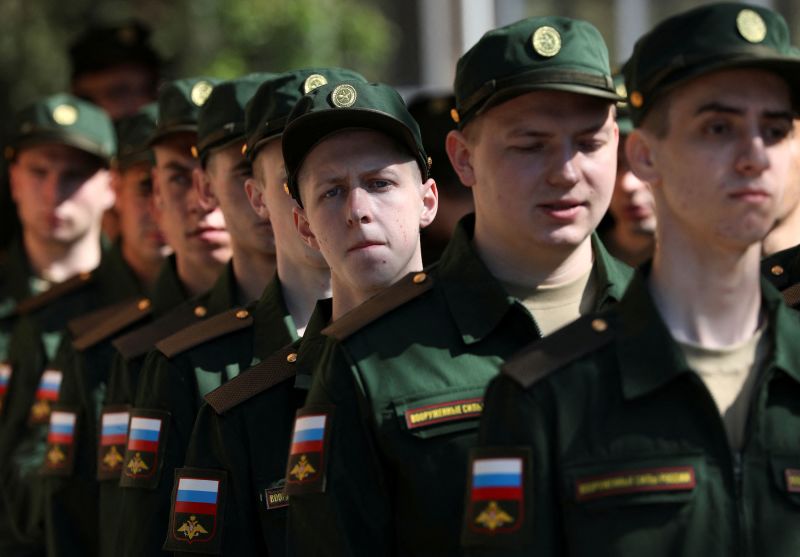Russian Conscriptions Expand into Ukraine’s Occupied Regions: A Disturbing Development in the Ongoing Conflict
In a significant escalation of the ongoing conflict between Russia and Ukraine, reports have emerged that Russian conscriptions have extended into Ukraine’s occupied regions for the first time. This development has raised concerns among international observers, as it further exacerbates tensions and threatens to prolong the already devastating conflict. In this article, we delve into the implications of this move and its potential consequences for the region.
1. Historical Context:
To understand the gravity of this development, it is crucial to revisit the historical context of the conflict. The conflict between Russia and Ukraine began in 2014 when Russia annexed Crimea, a move that was widely condemned by the international community. Since then, the conflict has escalated, resulting in thousands of deaths and displacements, and leaving a lasting impact on the region.
2. Russian Conscriptions:
Conscription, or mandatory military service, has long been a part of Russia’s defense strategy. However, until now, it had primarily been limited to Russian citizens within its borders. The extension of conscriptions into Ukraine’s occupied regions marks a significant departure from this norm and signals a more aggressive stance by Russia.
3. Implications for the Conflict:
The extension of conscriptions into Ukraine’s occupied regions has several implications for the ongoing conflict. Firstly, it suggests that Russia is further entrenching its presence in these territories, making any future resolution even more challenging. Secondly, it raises concerns about the potential for an escalation in violence, as conscripted individuals may be more willing to engage in combat. This move also undermines the already fragile peace negotiations and casts doubt on Russia’s commitment to finding a diplomatic solution.
4. International Response:
The international community has expressed deep concern over this development. Many countries have condemned Russia’s actions, viewing them as a violation of Ukraine’s sovereignty and territorial integrity. Calls for increased diplomatic efforts and sanctions against Russia have grown louder, as the extension of conscriptions threatens to destabilize the region further.
5. Humanitarian Consequences:
The extension of conscriptions also has severe humanitarian consequences. It puts the lives of young individuals at risk, forcing them into a conflict they did not choose. Additionally, it adds to the already significant number of internally displaced persons in Ukraine, further straining resources and exacerbating the humanitarian crisis.
The extension of Russian conscriptions into Ukraine’s occupied regions represents a dangerous escalation in the ongoing conflict. It not only deepens the divide between Russia and Ukraine but also poses a threat to regional stability. The international community must unite in condemning these actions and work towards finding a peaceful resolution to the conflict. The lives and well-being of countless individuals are at stake, and it is imperative that steps are taken to prevent further suffering and bloodshed.

